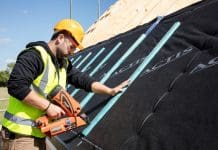Orkney Islands Council has implemented digital twin technology across its building portfolio to optimise operational performance, energy efficiency and air quality
Working in partnership with IES and Danalto, Orkney Islands Council has used digital twin technology to centralise its building data into a single platform, allowing the council to quickly identify issues and manage buildings from one location.
In doing so, this has improved efficiency and saved time when analysing and translating data into actions to improve building performance across various areas including, occupant health and wellbeing, comfort, energy efficiency and costs.
The council began setting out a process to gather data from existing Building Management Systems (BMS) across seven of its sites
In order to collect more data than ever before, new heat meters, oil meters and electricity meters were implemented, as well as indoor and outdoor weather sensors. 
Using IES’s iSCAN cloud-based data analytics platform, the council were able to analyse data and translate it into actionable intelligence communicated via dashboards which can be accessed anywhere via web browser. These dashboards help the council to see what is happening across the portfolio, identify and prioritise faults and see where operational improvements can be made.
A secure connection to transfer data from IoT sensors to Danalto’s web service and then into IES’s iSCAN cloud-based data analytics platform was only possible through collaborative working.
Steven Bruce, project officer (ReFLEX) at Orkney Islands Council, said: “The IES Command Centre has given us a much clearer picture of what is happening across our portfolio and we have already earmarked a further two sites to add into the system.
“The sites are either having an upgrade or extension, so are ideal candidates for additional meters and sensors to be implemented at the same time.
“Ideally, we hope to eventually include all buildings with BMS or controls in them within the interface so we can manage the whole estate from this one system.”
Using digital twin technology to identify efficiency improvements, deliver savings, and optimise occupant health and wellbeing
During the project, the council was able to identify where CO2 concentrations were higher than expected through Indoor Air Quality monitoring – this informed measures to improve ventilation. The project also identified areas of overheating, representing significant opportunities to make savings across energy, cost and carbon.
Valeria Ferrando, associate director, ICL Consultancy at IES, said: “A data-led, integrated approach eliminates typical frustrations associated with managing large building portfolios, and reliably enables savings and better efficiency.
“At a time when energy costs are at an all-time high and the race to zero emissions is gathering pace, it is great to see our digital twin technology already making a difference to large portfolio owners and local authorities, such as Orkney Islands Council, by helping them to identify efficiency improvements and deliver savings, whilst also optimising conditions for the health and wellbeing of building occupants.”














